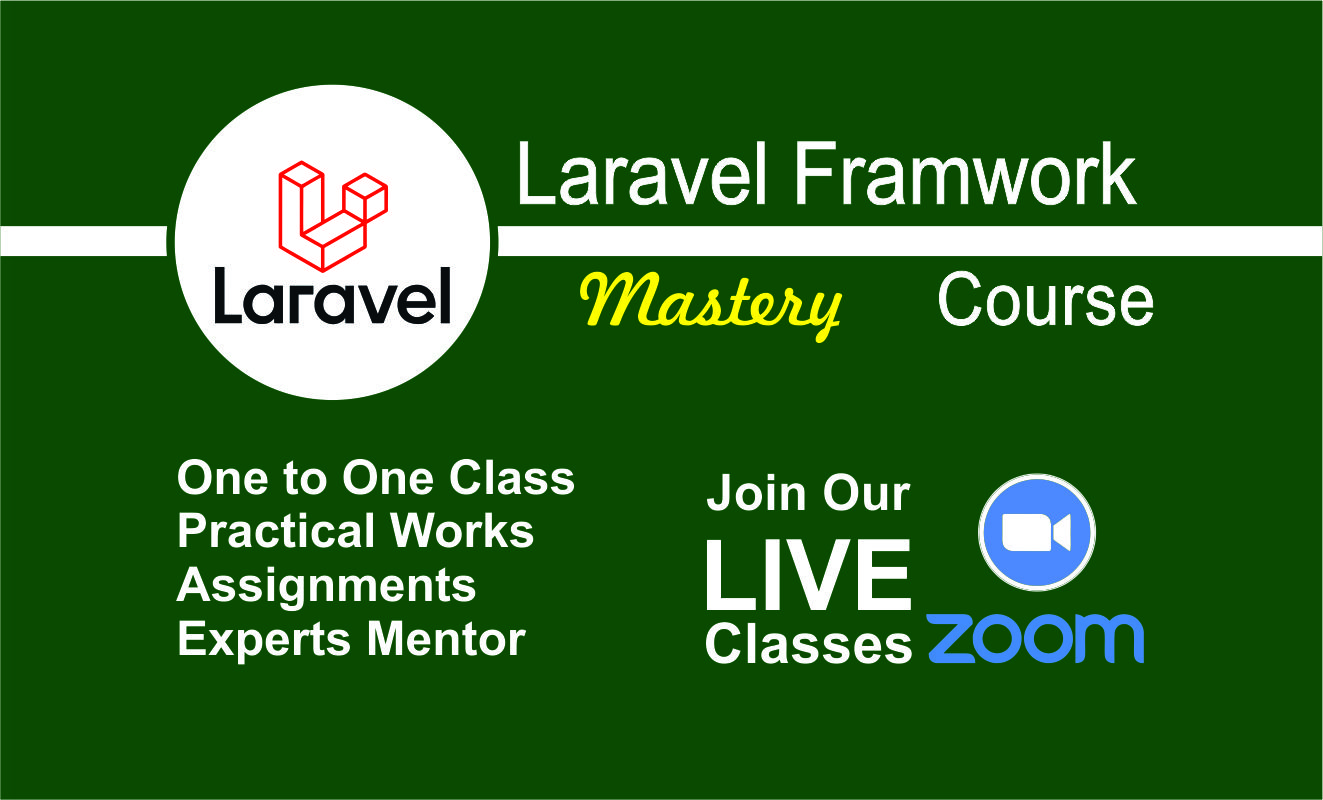This course is designed to provide comprehensive coverage of the Laravel PHP framework. Whether you're a beginner looking to learn the basics of web development or an experienced developer aiming to master Laravel's advanced features, this course will equip you with the skills and knowledge needed to build modern web applications efficiently.
Prerequisites:
- Basic understanding of PHP and web development concepts.
Course Duration: 10-12 weeks (adjustable based on the pace of the class)
Course Outline:
Week 1: Introduction to Laravel
- What is Laravel?
- Setting up a development environment
- Installing Laravel via Composer
- Creating your first Laravel project
Week 2: Laravel Fundamentals
- Understanding the Laravel directory structure
- Routing and controllers
- Blade templating engine
- Middleware and HTTP requests
Week 3: Database Integration
- Database configuration in Laravel
- Eloquent ORM (Object-Relational Mapping)
- Migration and seeding
- CRUD operations with Eloquent
Week 4: Authentication and Authorization
- User authentication with Laravel's built-in system
- Creating user roles and permissions
- Implementing custom authentication logic
- Securing routes and resources
Week 5: Validation and Form Handling
- Form validation in Laravel
- Creating and processing forms
- Error handling and validation messages
- Uploading files and images
Week 6: RESTful API Development
- Building RESTful APIs with Laravel
- API routes and controllers
- JSON responses and API resources
- API authentication and token-based access
Week 7: Frontend Development with Laravel
- Integrating Bootstrap or other CSS frameworks
- JavaScript and Vue.js in Laravel applications
- Using Laravel Mix for asset compilation
- Building interactive web interfaces
Week 8: Testing and Debugging
- Writing unit and feature tests
- PHPUnit and Laravel testing tools
- Debugging techniques in Laravel
- Continuous integration and deployment (CI/CD)
Week 9: Advanced Topics
- Service containers and dependency injection
- Building custom Laravel packages
- Queues and background jobs
- Events and event-driven programming
Week 10: Security and Performance
- Security best practices in Laravel
- Protecting against common web vulnerabilities
- Caching and optimization techniques
- Load balancing and scaling Laravel applications
Week 11: Laravel and Databases
- Working with multiple databases
- Database transactions and locking
- Eloquent relationships and advanced querying
- NoSQL databases and Laravel
Week 12: Real-world Applications
- Building a complete web application from scratch
- Integrating third-party services and APIs
- Deployment to production servers
- Monitoring and maintenance
Final Project:
- Students will develop a web application of their choice, applying the skills learned throughout the course. The project will be presented to the class.
Assessments:
- Weekly assignments and quizzes
- Midterm project (developing a basic Laravel application)
- Final project (building a comprehensive web application)
Resources:
- Laravel documentation
- Online tutorials and articles
- Recommended readings and references
This course outline can be adjusted based on the level of the students and the pace of learning. Practical coding exercises and real-world projects should be an integral part of the course to ensure students gain hands-on experience with the Laravel framework.

